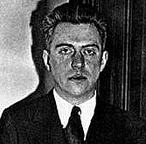Biography

Born in 1899 in Garrettsville, Ohio, Harold Hart Crane was a highly anxious and volatile child. He began writing verse in his early teenage years, and though he never attended college, read regularly on his own, digesting the works of the Elizabethan dramatists and poets—Shakespeare, Marlowe, and Donne—and the nineteenth-century French poets—Vildrac, Laforgue, and Rimbaud. His father, a candy manufacturer, attempted to dissuade him from a career in poetry, but Crane was determined to follow his passion to write.
Living in New York City, he associated with many important figures in literature of the time, including Allen Tate, Katherine Anne Porter, E. E. Cummings, and Jean Toomer, but his heavy drinking and chronic instability frustrated any attempts at lasting friendship. An admirer of T. S. Eliot, Crane combined the influences of European literature and traditional versification with a particularly American sensibility derived from Walt Whitman.
His major work, the book-length poem, The Bridge, expresses in ecstatic terms a vision of the historical and spiritual significance of America. Like Eliot, Crane used the landscape of the modern, industrialized city to create a powerful new symbolic literature. Hart Crane committed suicide in 1932, at the age of thirty-three, by jumping from the deck of a steamship sailing back to New York from Mexico.
White Buildings (1926)
The Bridge (1930)
The Complete Poems and Selected Letters and Prose (1966)
Letters (1952)
Last updated August 30, 2011



